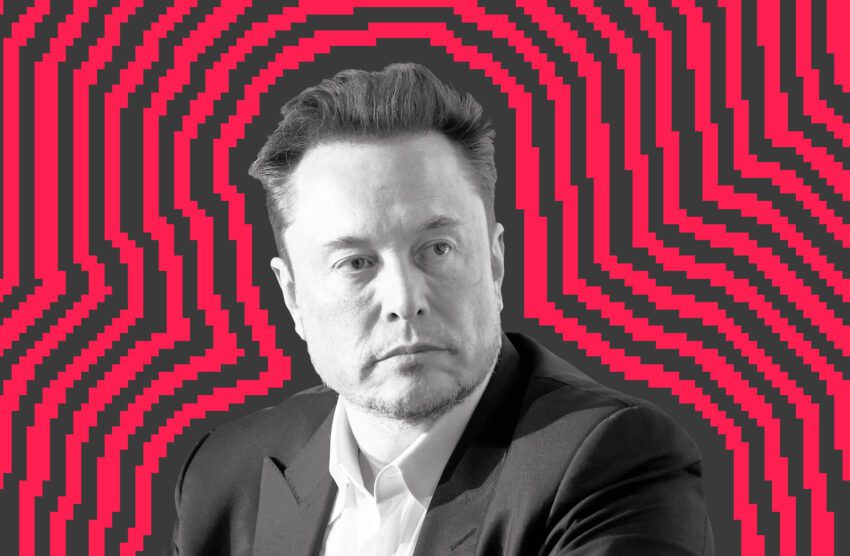
tesla rewards elon musk s reality-distortion field The recent Tesla annual shareholder meeting highlighted the company’s unique corporate culture and its CEO’s significant influence, particularly in light of a controversial pay package for Elon Musk.
tesla rewards elon musk s reality-distortion field
Elon Musk’s Pay Package: A Record-Breaking Proposal
During the annual shareholder meeting held on Thursday, the most attention-grabbing moment was undoubtedly the approval of Elon Musk’s staggering pay package, which is valued at nearly $1 trillion. This figure is unprecedented in the corporate world and raises questions about executive compensation and its alignment with company performance. Musk’s popularity among retail shareholders, coupled with his substantial voting power derived from his extensive stock holdings, made the approval of this package a foregone conclusion.
The pay package, initially proposed in 2018, is tied to ambitious performance targets that Musk must meet to unlock the full value of the compensation. These targets include significant increases in Tesla’s market capitalization and operational milestones. While the package has been criticized for its size, supporters argue that it aligns Musk’s interests with those of shareholders, incentivizing him to drive the company toward unprecedented growth.
Context of the Pay Package
Elon Musk’s compensation plan is not merely a reflection of his personal achievements but also a commentary on the broader trends in executive pay. In recent years, there has been an increasing focus on performance-based compensation in the tech industry, with many companies adopting similar structures to ensure that executives are rewarded for delivering tangible results. However, Musk’s package stands out due to its sheer scale, prompting discussions about the implications for corporate governance and accountability.
Critics of the pay package argue that such exorbitant compensation can create a disconnect between executives and the average employee, potentially leading to morale issues within the company. Additionally, there are concerns about the message it sends to the market regarding the value of executive contributions versus those of regular employees.
Shareholder Sentiment and Reactions
While Musk’s pay package was met with approval, not all proposals at the meeting received the same warm reception. A particularly telling moment occurred when shareholders booed a proposal from New York State Comptroller Thomas DiNapoli. This proposal aimed to repeal a new bylaw that effectively limits the ability of regular shareholders to sue the company.
The Bylaw Controversy
The bylaw in question has drawn criticism for potentially undermining shareholder rights. By making it more difficult for shareholders to initiate lawsuits against the company, critics argue that it could lead to a lack of accountability among Tesla’s leadership. The booing from the audience highlighted a divide among shareholders: while many support Musk and his vision for Tesla, there are also concerns about governance practices that may infringe on the rights of investors.
This incident underscores the complex relationship between Musk and Tesla’s shareholders. While many retail investors are enthusiastic supporters of Musk’s vision and the company’s innovative trajectory, there remains a faction that is wary of potential overreach by the board and management. The booing serves as a reminder that not all shareholders are aligned with Musk’s approach to corporate governance.
The Broader Implications for Corporate Governance
The dynamics observed at Tesla’s shareholder meeting reflect broader trends in corporate governance, particularly in the tech industry. Companies like Tesla often operate in a unique environment where charismatic leaders can exert significant influence over their organizations. This can lead to a culture that prioritizes innovation and growth but may also raise concerns about accountability and transparency.
Shareholder Rights and Corporate Accountability
The ability of shareholders to hold management accountable is a cornerstone of corporate governance. When bylaws are enacted that limit this ability, it raises questions about the balance of power within the company. In Tesla’s case, the booing of DiNapoli’s proposal indicates that some shareholders are concerned about their rights and the potential for unchecked executive power.
As companies navigate the complexities of governance, it is essential for them to strike a balance between empowering leadership and ensuring accountability. The Tesla shareholder meeting serves as a case study in this ongoing challenge, highlighting the need for transparent practices that protect the interests of all shareholders.
The Role of Retail Investors
Retail investors have played a significant role in Tesla’s rise, often rallying around Musk and his vision for the future of transportation. This grassroots support has contributed to Tesla’s market valuation and has positioned the company as a leader in the electric vehicle sector. However, the dynamics of retail investor influence also raise questions about the long-term sustainability of such support.
The Impact of Social Media and Online Communities
In recent years, social media and online communities have transformed the way retail investors engage with companies. Platforms like Twitter and Reddit have become hubs for discussions about stock performance, company news, and investment strategies. This shift has empowered retail investors, allowing them to organize and advocate for their interests more effectively.
However, the influence of social media can also lead to volatility in stock prices and create challenges for corporate governance. The Tesla shareholder meeting exemplifies this phenomenon, as the enthusiastic support for Musk and his pay package reflects the passionate engagement of retail investors. While this support can drive a company’s success, it also raises concerns about the potential for groupthink and the neglect of critical governance issues.
Looking Ahead: The Future of Tesla and Its Leadership
As Tesla continues to grow and expand its market presence, the implications of Musk’s pay package and the governance practices at the company will remain in the spotlight. Investors will be closely watching how Tesla navigates the challenges of scaling its operations while maintaining accountability and transparency.
The Importance of Sustainable Growth
For Tesla to sustain its success, it will need to balance innovation with responsible governance. This includes addressing shareholder concerns about rights and accountability while continuing to drive forward with its ambitious goals. The company’s ability to adapt to changing market conditions and investor expectations will be crucial in determining its long-term trajectory.
Moreover, as Tesla faces increasing competition in the electric vehicle market, the pressure will be on Musk and his leadership team to deliver results that justify their compensation. The stakes are high, and the eyes of investors, analysts, and the public will be watching closely.
Conclusion
The Tesla annual shareholder meeting served as a microcosm of the complex dynamics at play within the company and the broader tech industry. Elon Musk’s record-breaking pay package, the booing of governance proposals, and the passionate engagement of retail investors all highlight the challenges and opportunities that lie ahead for Tesla. As the company continues to innovate and expand, it will need to navigate these complexities carefully to ensure sustainable growth and maintain the trust of its shareholders.
Source: Original report
Was this helpful?
Last Modified: November 7, 2025 at 8:40 pm
2 views















